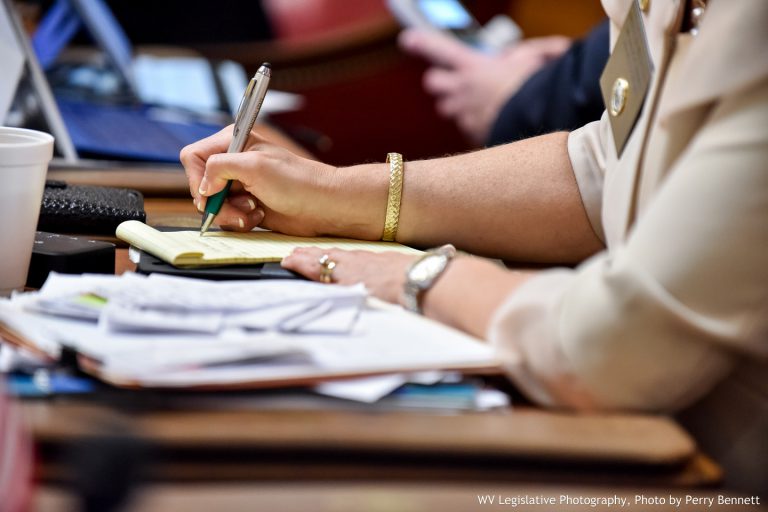As of 4 p.m., Wednesday February 1, 2012, the 22nd day of the 80th Legislatures 2nd Regular Session, 481 bills have been introduced in the Senate. Of those, 21 have passed the Senate and will move on to the House for further consideration. Bills passed by the Senate this week include:
Senate Bill 31 would increase the limit on the size of voting precincts to 5000 registered voters and increase the size of standard receiving boards in enlarged precincts.
Senate Bill 161 would make it mandatory to report child abuse or neglect. The bill would also increase penalties for those who do not report it.
Senate Bill 165 would create a criminal offense for sexual contact on incarcerated persons by correctional employees, regardless of consent.
Senate Bill 167 would authorize counties and municipalities to accept credit or check cards as payment. County officers may set a fee to be added to each transaction equal to the charge paid by the county officers for the use of the credit or check card by the payer.
Senate Bill 202 would permit the Division of Forestry to enter into stewardship contracts with U. S. Forest Service.
Senate Bill 209 would substitute community service for confinement in jail for people who are under the age of 21 and purchase, consume, sell, serve or possess alcoholic liquor. This bill would also apply to those who misrepresent their age to purchase alcoholic liquor.
Senate Bill 221 would create the Jason Flatt Act of 2012. The bill would require the Center for Professional Development to provide routine education of all professional educators and certain service personnel on warning signs and resources for suicide prevention.
Senate Bill 224 would change the name of the Division of Banking to the Division of Financial Institutions and the titles of Commissioner of Banking and Deputy Commissioner of Banking to Commissioner of Financial Institutions and Deputy Commissioner of Financial Institutions.
Senate Bill 331 would provide notice and the ability to be heard during certain criminal and parole hearings to persons who have resided with a victim for at least one year prior to the crime.
Senate Bill 367 would outline when a possessor of real property would be subject to liability for physical injury or death to a trespasser.
Senate Bill 382 would clarify that a sex offender must register with the State Police in the county of his or her residence. The sex offender must also keep the State Police informed of any change to the required registration information.
Senate Bill 385 would update and expand the definition of computer as it relates to preparing, distributing or exhibiting obscene matter to minors.
Senate Bill 469 would relate to other post employment-benefits. This bill would create a plan to fund the state portion of the health care benefits to for state retirees. This will potentially eliminate the remaining $5 million unfunded liability. This bill includes a multi part provision. These provisions include a plan that will take $35 million a year from personal income tax collections. Under the proposal, $30 million a year would go into a fund to pay down the remaining $5 billion of long-term OPEB liability.
A Sampling of the Bills Introduced in the Senate
Senate Bill 327 would provide an exemption for the official mascot of Parkersburg South High School, commonly known as “The Patriot”, to carry a musket on school grounds when the mascot is acting in his or her official capacity. This is the same exemption that is granted to the West Virginia University Mountaineer.
Senate Bill 332 would require pawnbrokers to register with the State Police and collect certain information from their customers. The bill would give rule-making authority to the State Police to direct how pawnbrokers are to submit information collected to the State Police.
Senate Bill 341 would create the Restroom Access Act. This bill would provide access to private employee restrooms for persons with certain eligible medical conditions.





 At the start of today’s session, the House honored Spencer resident, Drew Miller, who ran from Long Beach, California to Spencer, West Virginia to raise money and awareness for the
At the start of today’s session, the House honored Spencer resident, Drew Miller, who ran from Long Beach, California to Spencer, West Virginia to raise money and awareness for the  During today’s floor session six bills passed in the Senate. Among those bills was
During today’s floor session six bills passed in the Senate. Among those bills was 
 Senate Bill 165 was read on the House floor today, which would prohibit correctional officers from engaging in sexual acts with prisoners who are incarcerated, or on parole or probation.
Senate Bill 165 was read on the House floor today, which would prohibit correctional officers from engaging in sexual acts with prisoners who are incarcerated, or on parole or probation. Two bills were passed in the House today including
Two bills were passed in the House today including  In this afternoon’s floor session the Senate passed six bills and introduced 11. The Senate also adopted
In this afternoon’s floor session the Senate passed six bills and introduced 11. The Senate also adopted 
 At the start of today’s session, Delegate Armstead welcomed Congresswoman Shelley Moore Capito to the the floor. Following that, the House went on to regular business and passed two bills.
At the start of today’s session, Delegate Armstead welcomed Congresswoman Shelley Moore Capito to the the floor. Following that, the House went on to regular business and passed two bills.